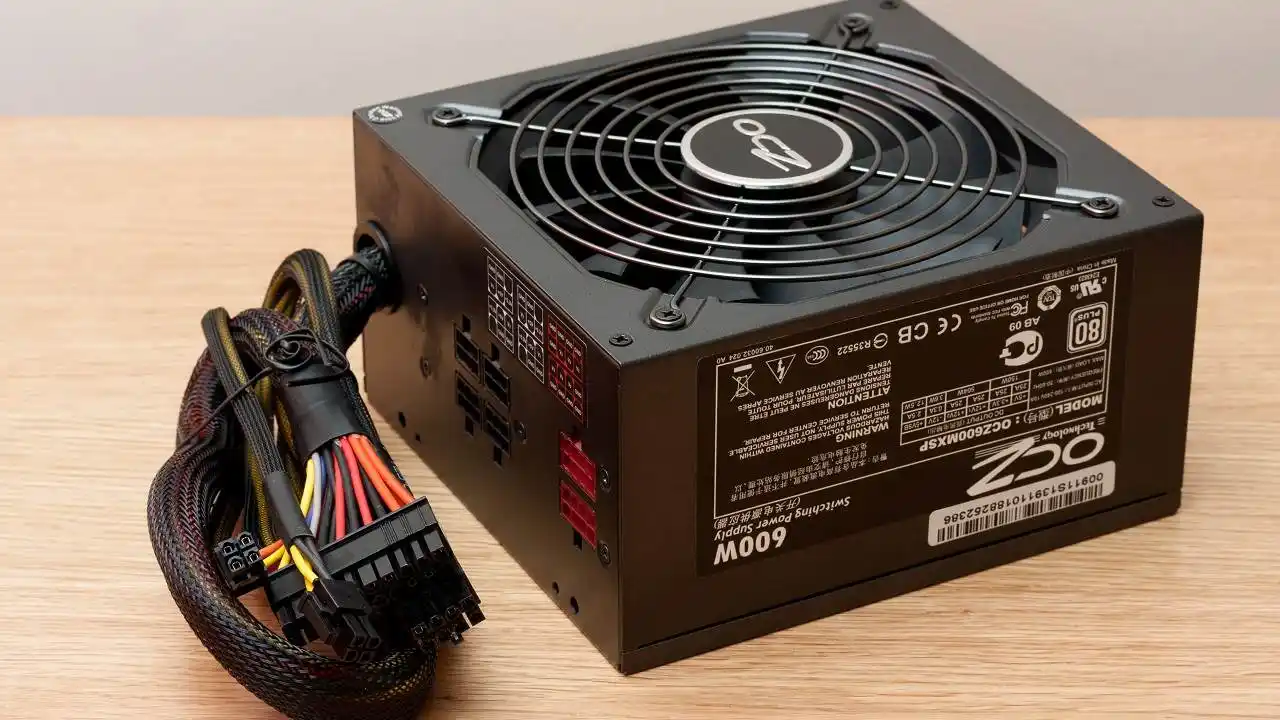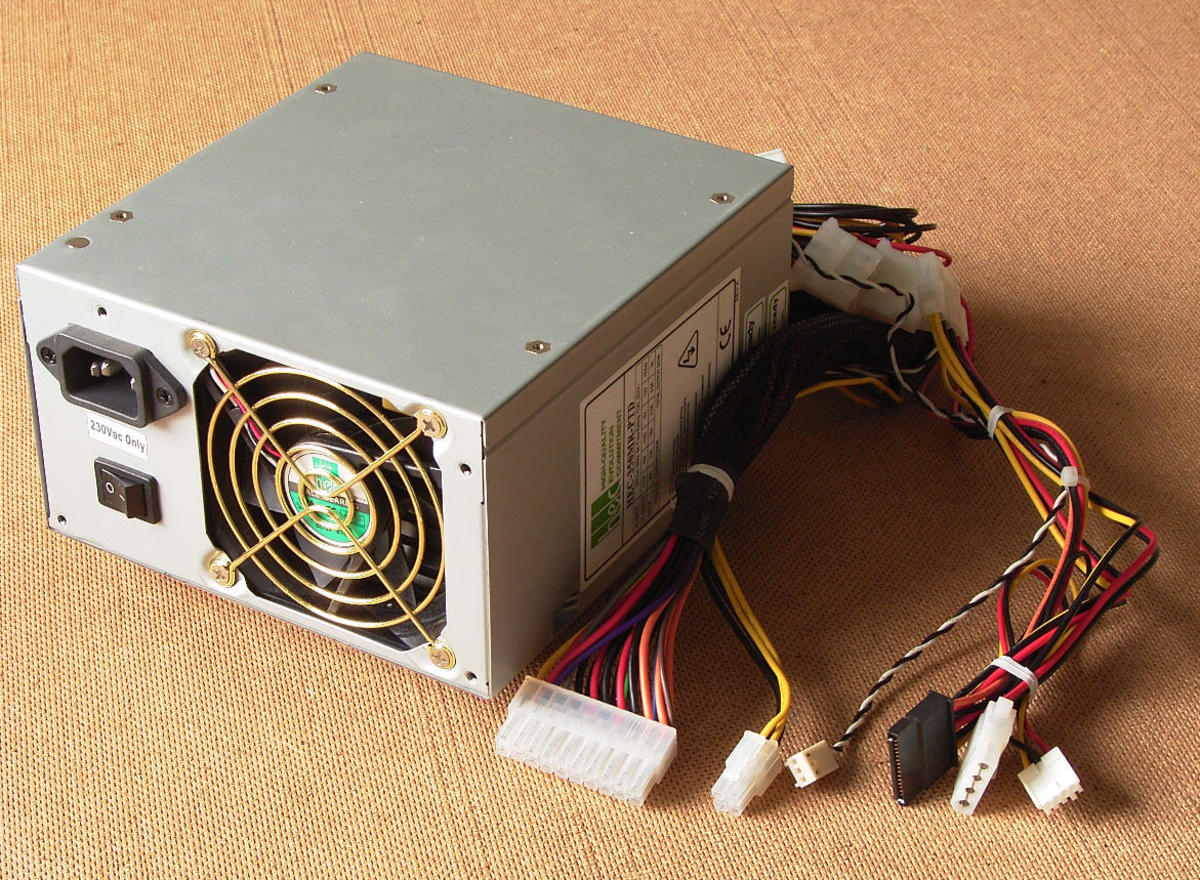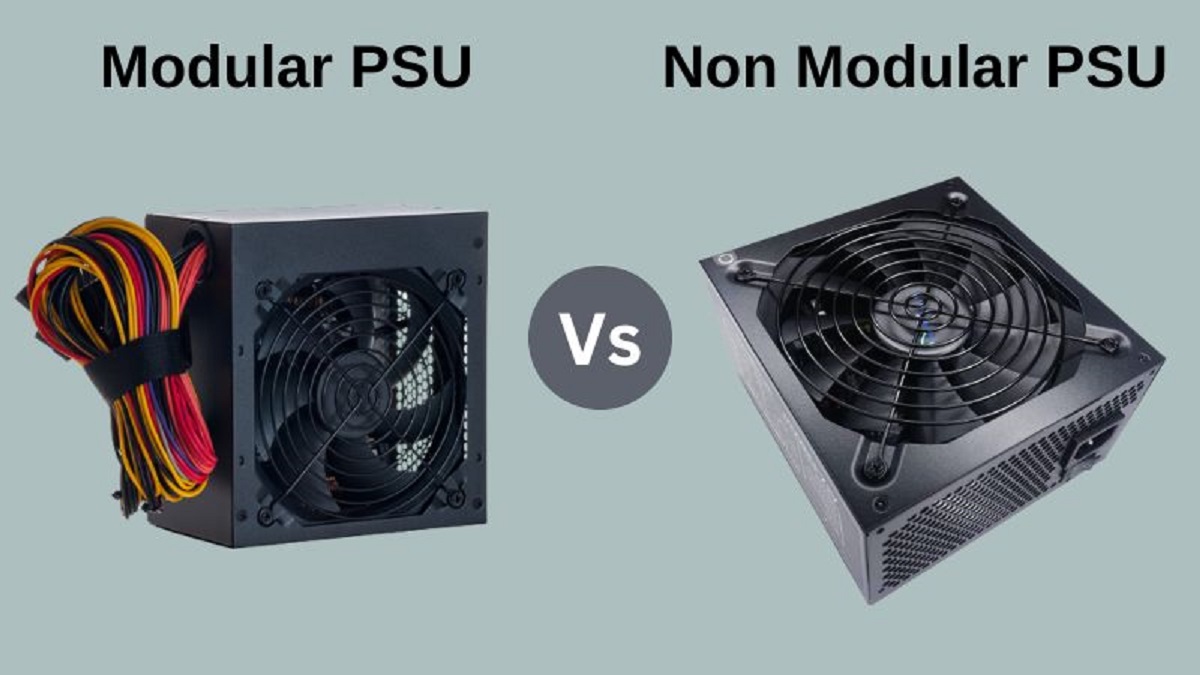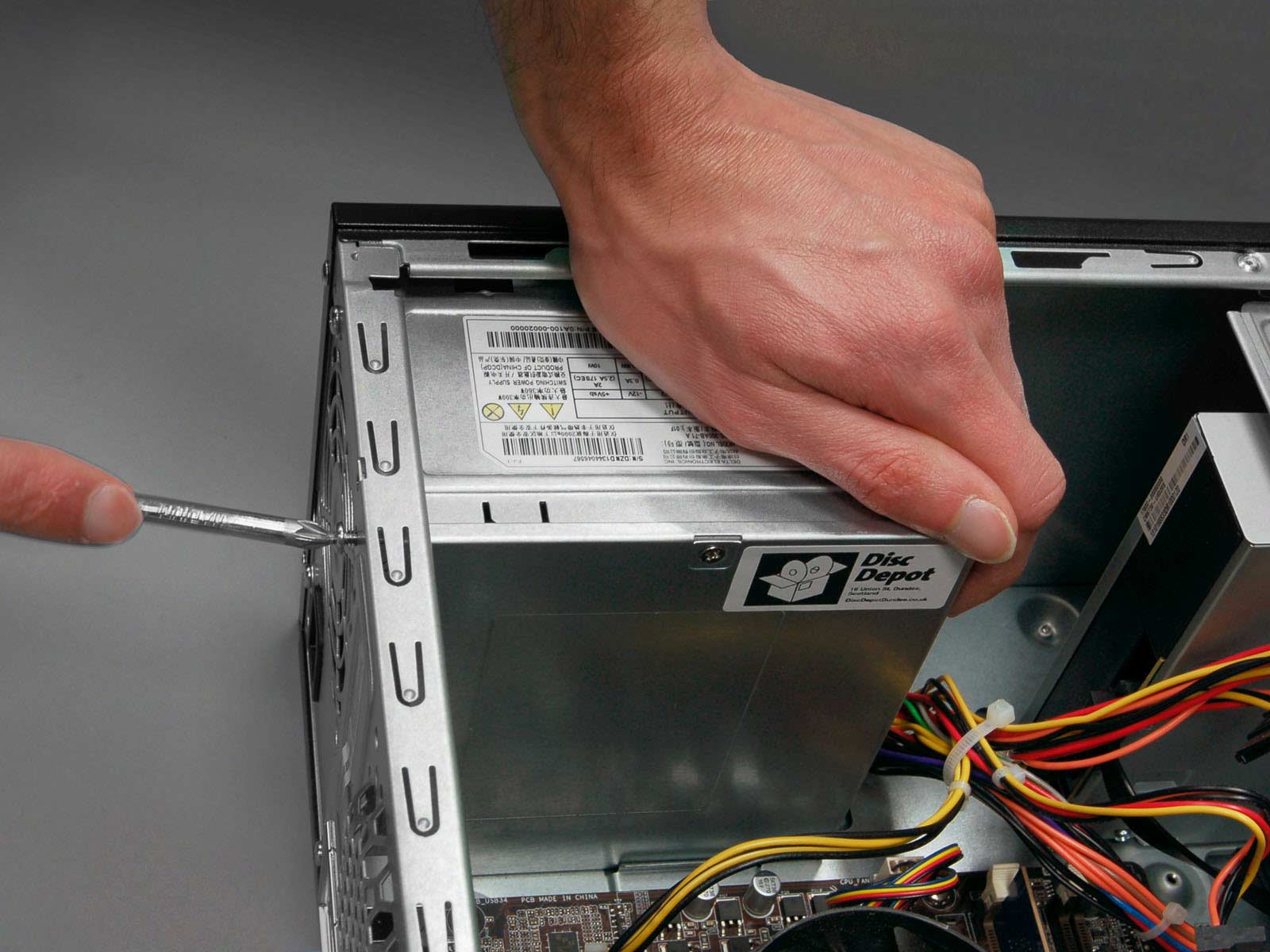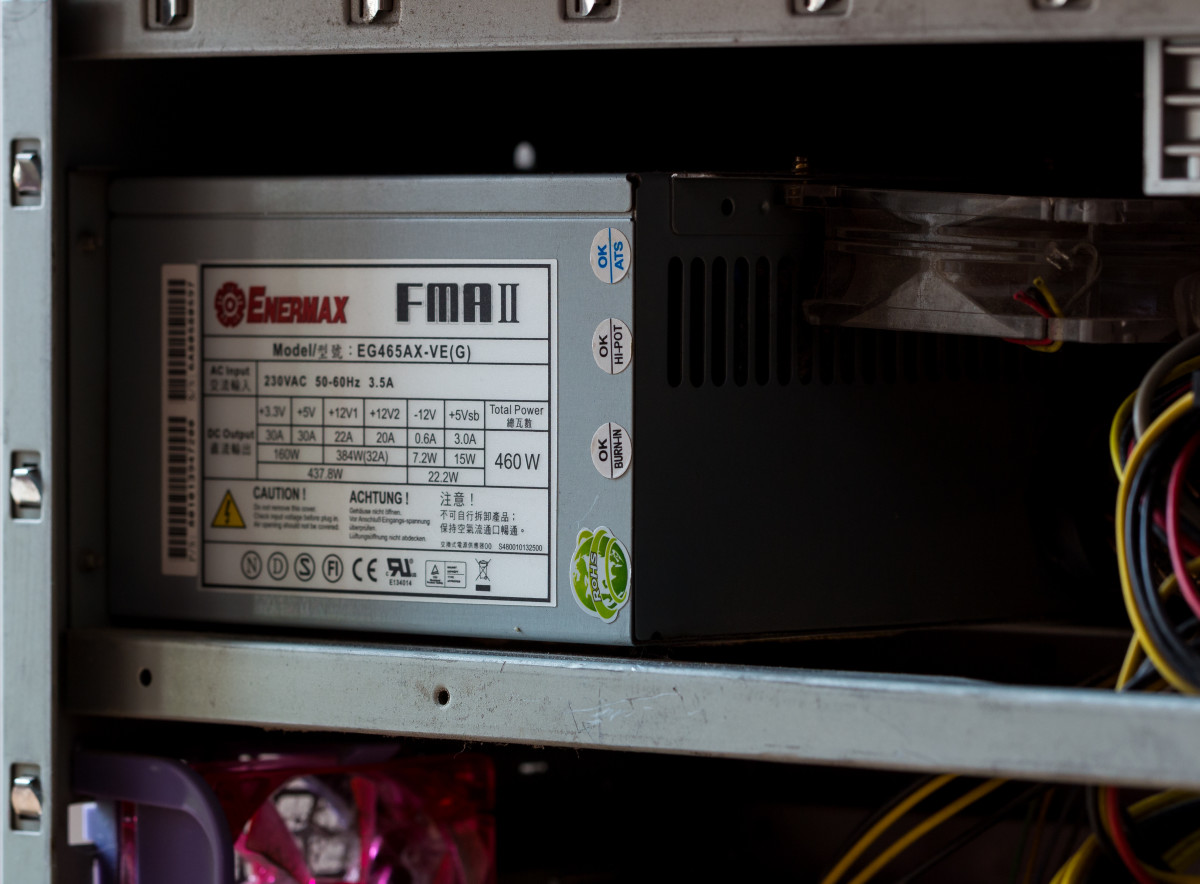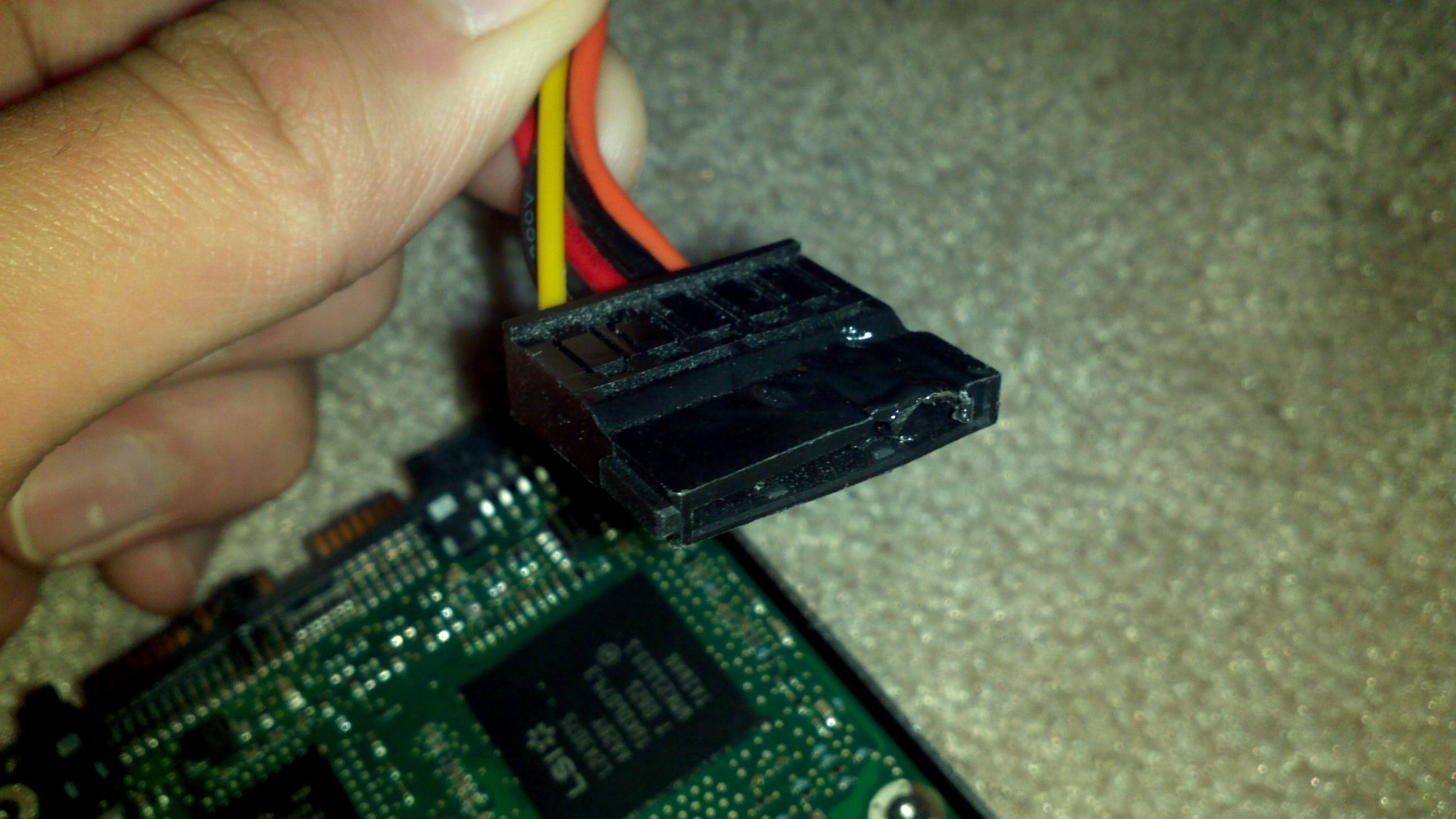Introduction
When it comes to building or upgrading a computer, choosing the right power supply unit (PSU) is essential. The PSU is responsible for delivering power to all the components in your computer system, and making the wrong choice can have serious consequences. A malfunctioning or inadequate PSU can lead to system instability, inadequate power delivery, and even damage to your components.
With a plethora of options available in the market, it can be daunting to determine which PSU is the best fit for your needs. There are a variety of factors to consider, ranging from wattage requirements to efficiency ratings and safety features. In this article, we will guide you through the process of choosing a PSU for your computer, ensuring that you make an informed decision.
We will discuss the importance of wattage and power requirements, the significance of efficiency and certification, the different form factors and sizes available, the importance of connectors and cables, the reputation of brands, the noise level and cooling capabilities, and the presence of overload protection and other safety features.
By considering these factors and understanding their impact on your computer system, you will be able to select a PSU that not only meets your power needs but also ensures reliability and longevity for your components. Choosing the right PSU is an investment in the performance and stability of your computer system, and we are here to help you make the best choice.
Factors to Consider When Choosing a PSU
When it comes to selecting a power supply unit (PSU) for your computer, there are several factors that you need to consider. Each of these factors plays a crucial role in determining the compatibility and suitability of the PSU for your specific needs. Let’s delve into the key factors that should guide your decision-making process.
- Wattage and Power Requirements: The wattage rating of a PSU indicates the maximum amount of power it can deliver to your components. It is essential to choose a PSU with sufficient wattage to handle the power demands of your system. Consider the power requirements of your processor, graphics card, and other components to ensure that the PSU can power them efficiently.
- Efficiency and Certification: PSU efficiency refers to how effectively it converts AC power from the wall outlet into DC power for your computer components. Look for PSUs with high efficiency ratings, such as 80 Plus certification, as they are more energy-efficient, generate less heat, and can save you money on your electricity bills in the long run.
- Form Factor and Size: PSUs come in different form factors, such as ATX, SFX, and TFX. Ensure that the PSU you choose is compatible with your computer case and motherboard. Consider the physical dimensions as well, especially if you have a small form factor or compact build.
- Connectors and Cables: Check the PSU’s connectivity options and ensure that it has the necessary connectors for your components, such as SATA, PCIe, and CPU power connectors. Additionally, modular or semi-modular PSUs offer the flexibility of using only the cables you need, reducing cable clutter inside your system.
- Brand and Reputation: Opt for PSUs from reputable brands known for their quality and reliability. Well-known brands often provide better customer support and warranties, ensuring peace of mind in case of any issues. Read reviews and consider feedback from other users to gauge the reliability of a PSU brand.
- Noise Level and Cooling: PSU fans can contribute to the overall noise level of your system. Look for PSUs with quiet fans or fanless designs if noise is a concern. Good cooling is essential to maintain optimal operating temperatures for your components. PSUs with larger fans or advanced cooling technologies are preferable.
- Overload Protection and Safety Features: A quality PSU should have built-in protections against overloading, short circuits, voltage fluctuations, and other potential hazards. These safety features safeguard your components and prevent damage caused by power surges or fluctuations.
- Additional Considerations and Tips: Consider factors like future upgradability, cable length, and warranty period when making your decision. It’s also worth consulting reputable sources, such as PSU calculators, to accurately estimate your power requirements.
By carefully considering these factors, you can ensure that you select a PSU that provides reliable power delivery, safeguards your components, and meets the specific requirements of your computer system.
Wattage and Power Requirements
One of the most critical factors to consider when choosing a power supply unit (PSU) for your computer is the wattage rating and power requirements. The wattage rating indicates the maximum amount of power that the PSU can deliver to your computer components. It is essential to choose a PSU with sufficient wattage to handle the power demands of your system.
When determining the appropriate wattage for your PSU, you need to consider the power requirements of your processor, graphics card, and other components. The power consumption of these components can vary significantly depending on their model, usage, and overclocking, if applicable.
For example, high-end gaming PCs with powerful processors and graphics cards will require higher wattage PSUs to ensure stable power delivery under heavy load. On the other hand, if you have a basic office or media consumption computer with integrated graphics, a lower wattage PSU may suffice.
It’s crucial to be mindful of potential future upgrades or additions to your system. If you plan to upgrade your CPU or graphics card in the near future, it’s a good idea to choose a PSU with a higher wattage to accommodate these upgrades without needing to replace the PSU again.
Additionally, consider other power-hungry components such as hard drives, SSDs, optical drives, and RGB lighting. While these components individually don’t consume a significant amount of power, their cumulative power consumption can add up and impact your PSU requirements.
One way to estimate your power requirements is by using online PSU calculators. These calculators take into account various factors such as the number and type of components, their power consumption, and the intended usage of your system. They provide a general guideline for selecting an appropriate wattage for your PSU.
However, it’s important to note that these calculators may not be 100% accurate, as they provide estimates based on average power consumption. Accounting for system efficiency, peak power demands, and potential future upgrades is advisable.
Choosing a PSU with higher wattage than your system requires can have some benefits. It provides headroom for any power spikes, allows for more efficient power delivery, and ensures that the PSU operates within its optimal efficiency range. However, unnecessarily high wattage PSUs can be more expensive and less energy-efficient, as they may be less efficient at lower loads.
Overall, determining the wattage and power requirements for your system is a crucial step in selecting the right PSU. Balancing the power demands of your components, considering future upgrades, and using online PSU calculators as a guide will help ensure that you choose a PSU that provides stable, efficient, and reliable power delivery to your computer system.
Efficiency and Certification
Efficiency is a crucial factor to consider when choosing a power supply unit (PSU) for your computer. PSU efficiency refers to how effectively it converts alternating current (AC) power from the wall outlet into direct current (DC) power for your computer components. Opting for a PSU with high efficiency can bring several benefits.
One of the primary advantages of a highly efficient PSU is energy savings. By converting power more efficiently, these PSUs waste less energy as heat, resulting in lower electricity bills. Over time, the savings can add up, especially if your computer is frequently used or left running for extended periods.
PSU efficiency is typically measured and rated by various certification programs. The most common and widely recognized certification is the 80 Plus rating system. The 80 Plus certification ensures that a PSU meets specific efficiency standards, with ratings ranging from standard 80 Plus to higher levels such as 80 Plus Bronze, Silver, Gold, Platinum, and Titanium.
A PSU with an 80 Plus Bronze certification or higher indicates that it has met stringent efficiency criteria. The higher the certification level, the more efficient the PSU is expected to be. While PSUs with higher certification levels may have a higher upfront cost, their increased efficiency can lead to long-term energy savings and a more environmentally friendly setup.
Another factor related to efficiency is the load capacity of the PSU. PSUs generally operate most efficiently within a specific load range. It’s important to choose a PSU that matches the power requirements of your system while considering its efficiency at both low and high loads.
Additionally, a PSU with high efficiency generates less heat, resulting in a cooler and more stable operating environment for your computer components. Lower heat generation not only reduces the strain on your system’s cooling mechanisms but also helps prolong the lifespan and overall reliability of your components.
It’s important to note that PSU efficiency can vary depending on the load. PSUs tend to be most efficient when operating between 50% and 80% of their maximum rated load. Therefore, it’s essential to consider the typical power consumption of your system and select a PSU that matches this usage pattern.
When researching and comparing PSUs, pay attention to the efficiency ratings and certifications provided by reputable manufacturers. While the efficiency of a PSU is just one aspect to consider, it is an important factor in ensuring that your computer system consumes power efficiently, saving you money and reducing its environmental impact.
By selecting a PSU with high efficiency and suitable certification, you can enjoy the benefits of lower energy consumption, reduced heat generation, and a stable power supply for your computer system.
Form Factor and Size
When choosing a power supply unit (PSU) for your computer, considering the form factor and size is vital to ensure compatibility with your system. PSUs come in different form factors, and selecting the appropriate one for your build is crucial.
The most common and widely used form factor for desktop computers is the ATX (Advanced Technology eXtended) form factor. ATX PSUs are suitable for standard-sized desktop cases and motherboards. However, it’s necessary to ensure that the PSU dimensions match the available space in your case.
In addition to ATX, there are other form factors such as SFX (Small Form Factor eXtended) and TFX (Thin Form Factor eXtended), which are smaller in size and primarily used for compact or slim cases. If you have a small form factor build, it’s essential to choose a PSU that fits within the space constraints of your case while providing sufficient power for your components.
When selecting a PSU form factor, it’s also necessary to consider compatibility with your motherboard. Most PC motherboards are designed to be compatible with ATX PSUs. However, some compact or specialized motherboards may require specific form factors, such as Mini-ITX boards requiring SFX PSUs.
Moreover, it’s crucial to ensure that the PSU you choose has the necessary cable connections for your components. Aspects to consider include the number of SATA connectors for drives, PCIe connectors for graphics cards, and CPU power connectors. While most PSUs come with standard connectors, it’s essential to verify that they match your specific requirements.
Additionally, considering the physical dimensions of the PSU is important, particularly if you have limited space inside your computer case. Take into account the length, width, and height of the PSU to ensure it fits comfortably without any interference with other components or obstructing airflow.
Keep in mind that smaller form factor PSUs may have reduced power capacity and fewer connectors compared to their larger counterparts. It’s crucial to strike a balance between form factor, power requirements, and available connectors to ensure compatibility and functionality for your system.
When researching and comparing PSUs, review the product specifications provided by manufacturers to determine their dimensions and form factors. Additionally, consult the documentation of your computer case and motherboard to verify the compatible PSU form factors.
By carefully considering the form factor and size of the PSU, you can ensure that it fits seamlessly into your computer build, provides sufficient power to your components, and contributes to a well-organized and efficient system.
Connectors and Cables
Choosing a power supply unit (PSU) with the right connectors and cables is essential to ensure proper connectivity and compatibility with your computer components. Different components require specific power connectors, and having the necessary connectors is crucial for a successful build.
One of the most common connectors is the SATA power connector, which is used to provide power to hard drives, solid-state drives (SSDs), and optical drives. Ensure that the PSU you choose has an adequate number of SATA power connectors to accommodate all your storage devices.
Graphics cards, especially high-end ones, often require PCIe (Peripheral Component Interconnect Express) power connectors. These connectors supply additional power to the graphics card to ensure stable and reliable performance. Check the power requirements of your graphics card and ensure that the PSU has the appropriate number and type of PCIe connectors.
In addition to SATA and PCIe connectors, the PSU should also provide the necessary CPU power connectors. Modern processors typically require an 8-pin or 4+4-pin CPU power connector. Verify the power requirements of your processor and ensure that the PSU has the corresponding CPU power connectors.
Modular and semi-modular PSUs offer additional flexibility when it comes to cable management. These PSUs allow you to connect only the necessary cables, reducing cable clutter inside your system. This not only improves airflow but also makes the installation and maintenance process easier. However, keep in mind that modular PSUs may be more expensive than non-modular ones.
When selecting a PSU, consider the length of the cables as well. If you have a larger computer case or if you plan to route cables in a specific way for optimal cable management, make sure that the PSU cables are long enough to reach all the necessary components.
It’s also worth noting that some PSUs come with braided or sleeved cables, which add to the aesthetics of your build. While not essential for functionality, these cables can contribute to a cleaner and more visually appealing setup.
Before purchasing a PSU, thoroughly review the specifications provided by the manufacturer to ensure it has the necessary connectors for your specific computer components. Consult the documentation and specifications of your motherboard, graphics card, and other components to ascertain the required power connectors.
By choosing a PSU with the appropriate connectors and cables, you can ensure a seamless and hassle-free installation process, proper power delivery to your components, and an organized and clutter-free computer system.
Brand and Reputation
When it comes to selecting a power supply unit (PSU) for your computer, considering the brand and reputation is an important factor to ensure the reliability and quality of your chosen PSU.
Opting for PSUs from reputable brands has several advantages. Established brands have a track record of manufacturing high-quality and reliable PSUs, as they have invested in research, development, and quality control processes over time. These brands often have stricter manufacturing standards, resulting in PSUs that are less likely to fail or cause issues with your components.
Reputable brands also tend to have better customer support and warranty services. In the event of any problems or issues with your PSU, a reliable brand will usually provide better assistance and faster resolution compared to lesser-known or generic brands. This can save you time and frustration, as well as provide peace of mind knowing that you can rely on the brand for support if needed.
It’s important to conduct thorough research and read reviews from trusted sources and reputable technology publications to gauge the reputation of different PSU brands. Pay attention to feedback from other users who have firsthand experience with the PSU models you are considering. This can provide valuable insights into the real-world performance and reliability of the PSUs from different brands.
When considering a brand, look for brands that have been in the market for a significant period and have a strong presence in the computer hardware industry. Names like Corsair, EVGA, Seasonic, Thermaltake, and Antec are well-regarded and widely recognized for their PSU offerings.
Keep in mind that reputable brands may come with a slightly higher price tag compared to lesser-known or generic brands. However, investing in a PSU from a reputable brand ensures peace of mind and reduces the risk of potential issues that could arise from using a low-quality or unreliable PSU.
While brand reputation is an essential consideration, it is not the only factor to base your decision on. It’s important to assess other aspects such as wattage, efficiency, form factor, and connectivity to ensure compatibility and functionality for your specific needs.
In summary, selecting a PSU from a reputable brand is crucial for ensuring quality, reliability, and customer support. By considering the reputation of different brands and reading reliable reviews, you can make an informed decision and choose a PSU that meets your expectations and provides a dependable power supply for your computer system.
Noise Level and Cooling
When choosing a power supply unit (PSU) for your computer, considering the noise level and cooling capabilities is essential for maintaining a quiet and cool operating environment. The noise level of a PSU is determined by the quality of its fan and the cooling mechanism it employs.
PSU fans are responsible for cooling the internal components and dissipating heat generated during operation. However, some PSUs may produce noticeable fan noise, especially under heavy loads. If a quiet working environment is important to you, consider PSUs that are designed for low noise operation.
PSUs with larger fans tend to produce less noise as they can move the same amount of air with lower RPM, resulting in quieter operation. Additionally, some PSUs feature fanless designs, eliminating fan noise altogether. These fanless PSUs use heatsinks and passive cooling techniques to dissipate heat, making them ideal for situations where silent operation is a priority.
It’s also important to consider the cooling capabilities of the PSU to ensure that it can effectively dissipate heat and keep your system components running at optimal temperatures. PSUs with efficient cooling mechanisms help maintain stable operation and increase the longevity of your components.
Look for PSUs with advanced cooling technologies such as temperature-controlled fans, which adjust their speed based on system temperature, minimizing noise without compromising on cooling performance. Additionally, PSUs with 80 Plus certification often have more efficient power conversion, resulting in reduced heat generation.
When researching and comparing PSUs, take note of the noise level ratings provided by manufacturers. These ratings specify the maximum noise level in decibels (dB) that the PSU produces under various load conditions. Lower noise level ratings indicate quieter operation.
It’s important to strike a balance between cooling performance and noise level based on your specific needs. For example, if you are building a gaming PC with high-performance components that generate a lot of heat, you may prioritize cooling performance over noise reduction. On the other hand, for a multimedia or office setup where silence is valued, a PSU with lower noise output would be more suitable.
Reading reviews and feedback from other users can provide insights into the actual noise level and cooling performance of different PSU models. Consider reviews from reputable sources and user forums to get a comprehensive understanding of each PSU’s noise level and cooling capabilities.
In summary, selecting a PSU with a noise level that aligns with your preferences and ensuring adequate cooling capabilities are crucial for creating a quiet and cool operating environment. By considering PSU options with low noise fans, fanless designs, efficient cooling technologies, and reading reliable reviews, you can make an informed decision and choose a PSU that fits your specific requirements.
Overload Protection and Safety Features
When selecting a power supply unit (PSU) for your computer, it is important to consider the overload protection and safety features that the PSU offers. These features are designed to safeguard your components and prevent damage caused by power surges, short circuits, and other potential hazards.
Overload protection is a critical safety feature provided by most modern PSUs. It prevents the PSU from supplying more power than it can handle, thus protecting the PSU and the components connected to it. In the event of an overload, the PSU will automatically shut down or limit the power output to prevent overheating, voltage fluctuations, or component damage.
Short circuit protection is another essential safety feature to look for in a PSU. It detects and responds to short circuits, which can occur when the positive and negative wires of a circuit come into direct contact, causing excessive current flow. The PSU’s short circuit protection mechanism immediately disables the power output to prevent damage to the PSU and the rest of the system.
Power surge protection is an important safeguard against sudden voltage spikes or power surges from the electrical grid. These surges can damage or destroy sensitive components, such as the motherboard, processor, and graphics card. A PSU with proper power surge protection can prevent these voltage fluctuations from reaching your computer components, ensuring their longevity and reliability.
Some PSUs also offer under voltage protection, which safeguards your system from potential damage caused by extremely low voltage conditions. This feature can help prevent instability, data corruption, and component failure due to inadequate power supply.
It is worth noting that PSUs with higher certifications such as 80 Plus Gold or Platinum often come with additional safety features. These may include electromagnetic interference (EMI) filters to reduce electrical noise, thermal protection to prevent excessive heat build-up, and over-temperature protection to shut down the PSU in case of overheating.
When researching different PSU options, read the specifications provided by manufacturers to ensure that the PSU you choose includes appropriate overload protection, short circuit protection, power surge protection, and other safety features. These safety measures provide added peace of mind and protect your investment in computer components.
Furthermore, it is advisable to check if the PSU has obtained safety certifications from recognized organizations such as UL (Underwriters Laboratories) or TÜV (Technischer Überwachungsverein). These certifications indicate that the PSU has undergone rigorous testing and meets specific safety standards.
While safety features may not directly impact the performance or power delivery of the PSU, they play a critical role in protecting your computer components from potential damage. By selecting a PSU with robust overload protection and other safety features, you can ensure a reliable and secure power supply for your computer system.
Additional Considerations and Tips
Choosing the right power supply unit (PSU) for your computer involves more than just considering wattage and basic features. There are additional factors and tips to keep in mind to ensure a successful and optimal PSU selection for your system. Here are some important considerations and tips to assist you in the process:
- Future Upgradability: If you anticipate upgrading your computer components in the future, consider selecting a PSU with higher wattage than your current requirements. This will provide headroom for any power-demanding upgrades, saving you from needing to replace the PSU again in the near future.
- Cable Length: Pay attention to the length of the PSU cables, particularly if you have a larger computer case or if you plan to route cables in a specific manner. Ensure that the cables are long enough to reach the intended component connections without causing strain or impeding proper cable management.
- Warranty: Check the warranty period offered by the PSU manufacturer. A longer warranty signifies the manufacturer’s confidence in the quality and reliability of their product. Additionally, it provides you with peace of mind knowing that you are covered in case of any PSU-related issues.
- Compatibility: Verify compatibility with your computer case and motherboard. Ensure that the PSU’s form factor is compatible with the available space in your case and that the PSU connectors match the requirements of your motherboard and components.
- Read Reviews: Take advantage of user reviews and feedback from trusted sources when researching different PSU options. Real-world experiences from other users can provide valuable insights into the reliability, performance, and noise level of the PSU you are considering.
- Consider Efficiency: While efficiency is important for energy savings and reduced heat generation, always assess your specific needs and usage patterns. Consider whether the higher cost of a more efficient PSU is justified by your expected usage and electricity savings.
- Modularity: Modular or semi-modular PSUs offer flexibility in cable management by allowing you to connect only the necessary cables. This reduces cable clutter, improves airflow, and eases installation and maintenance. However, note that modular PSUs may come at a slightly higher cost compared to non-modular ones.
Lastly, it is recommended to use PSU calculators available online to estimate your power requirements accurately. These calculators take into account various factors like component selection, usage patterns, and potential overclocking to provide a rough estimate of the wattage needed for your system.
Remember that a PSU is a crucial component in your computer system, ensuring stable and reliable power delivery to all other hardware. It is worth investing time in researching and selecting the right PSU that meets your specific requirements and provides a solid foundation for your computer build.
Conclusion
Choosing the right power supply unit (PSU) for your computer is a critical step in building or upgrading your system. By considering various factors such as wattage and power requirements, efficiency and certification, form factor and size, connectors and cables, brand and reputation, noise level and cooling, overload protection and safety features, as well as additional considerations and tips, you can ensure a successful PSU selection that meets your needs.
Understanding your power requirements and selecting a PSU with sufficient wattage is vital for providing stable and efficient power to your components. The efficiency and certification of the PSU impact energy savings, heat generation, and long-term cost-effectiveness.
Considering the form factor and size ensures compatibility with your computer case and motherboard, while selecting a PSU with the right connectors and cables guarantees proper connectivity to your components. Opting for PSUs from reputable brands with a track record of reliability and customer support provides peace of mind and ensures a higher quality product.
Assessing noise level and cooling capabilities is essential for maintaining a quiet and cool operating environment, while overload protection and safety features safeguard your components from power surges, short circuits, and other potential hazards.
Additional considerations such as future upgradability, cable length, warranty, compatibility, and user reviews further enhance your decision-making process.
In conclusion, taking the time to consider these factors and make an informed PSU selection will contribute to the stability, reliability, and longevity of your computer system. By choosing a PSU that meets your specific needs and requirements, you can ensure optimal performance, energy efficiency, and a satisfactory user experience for your computer build.







